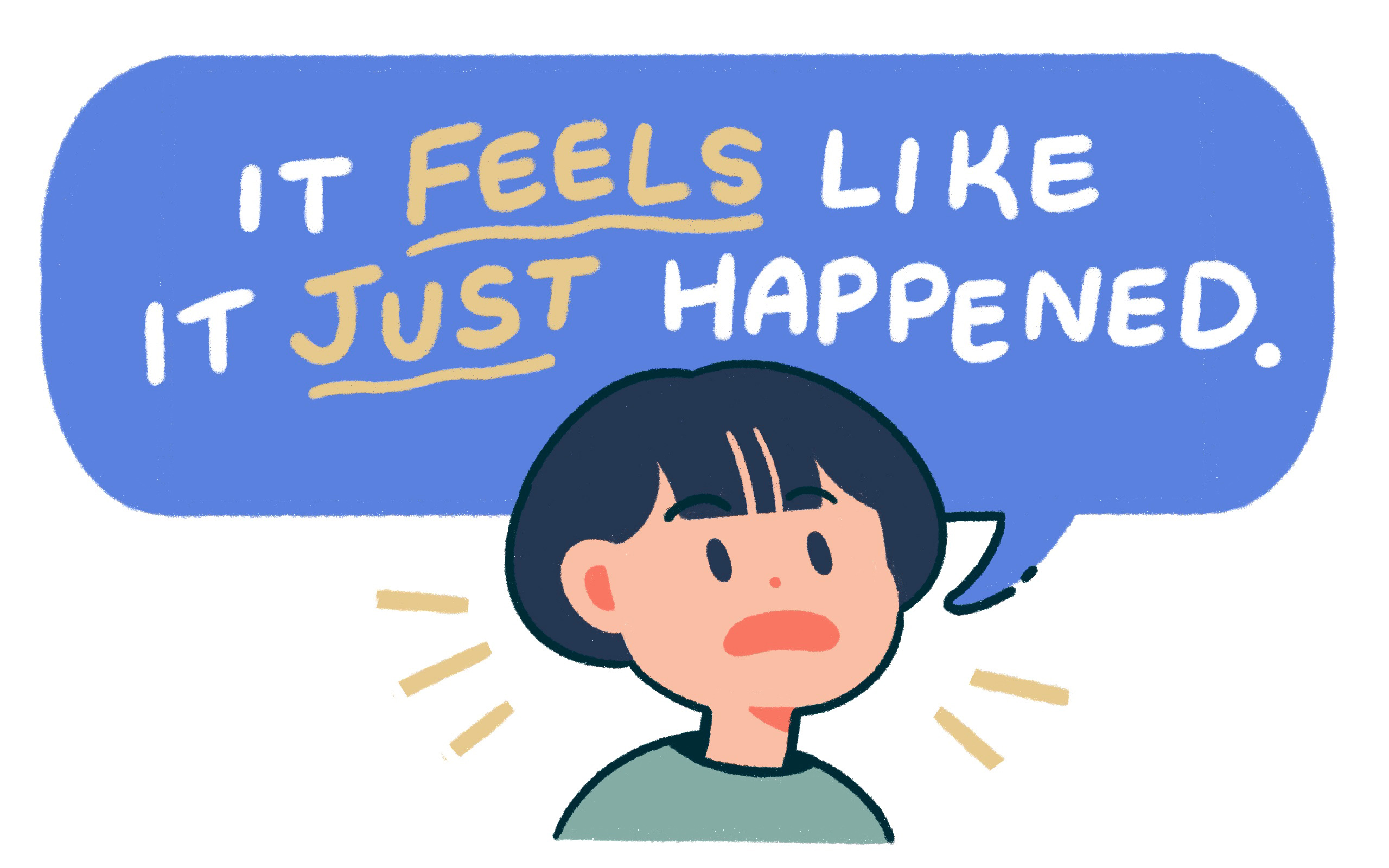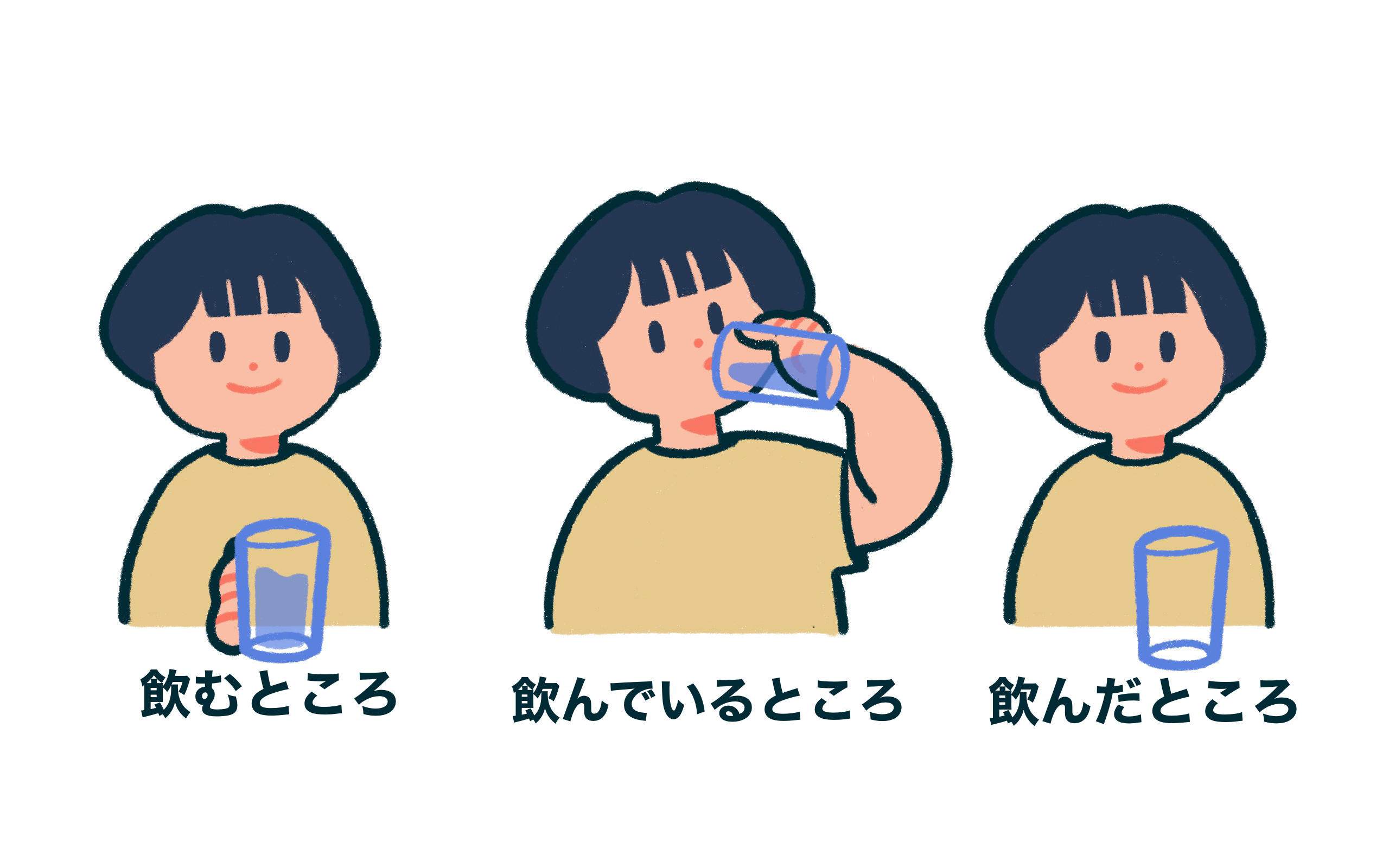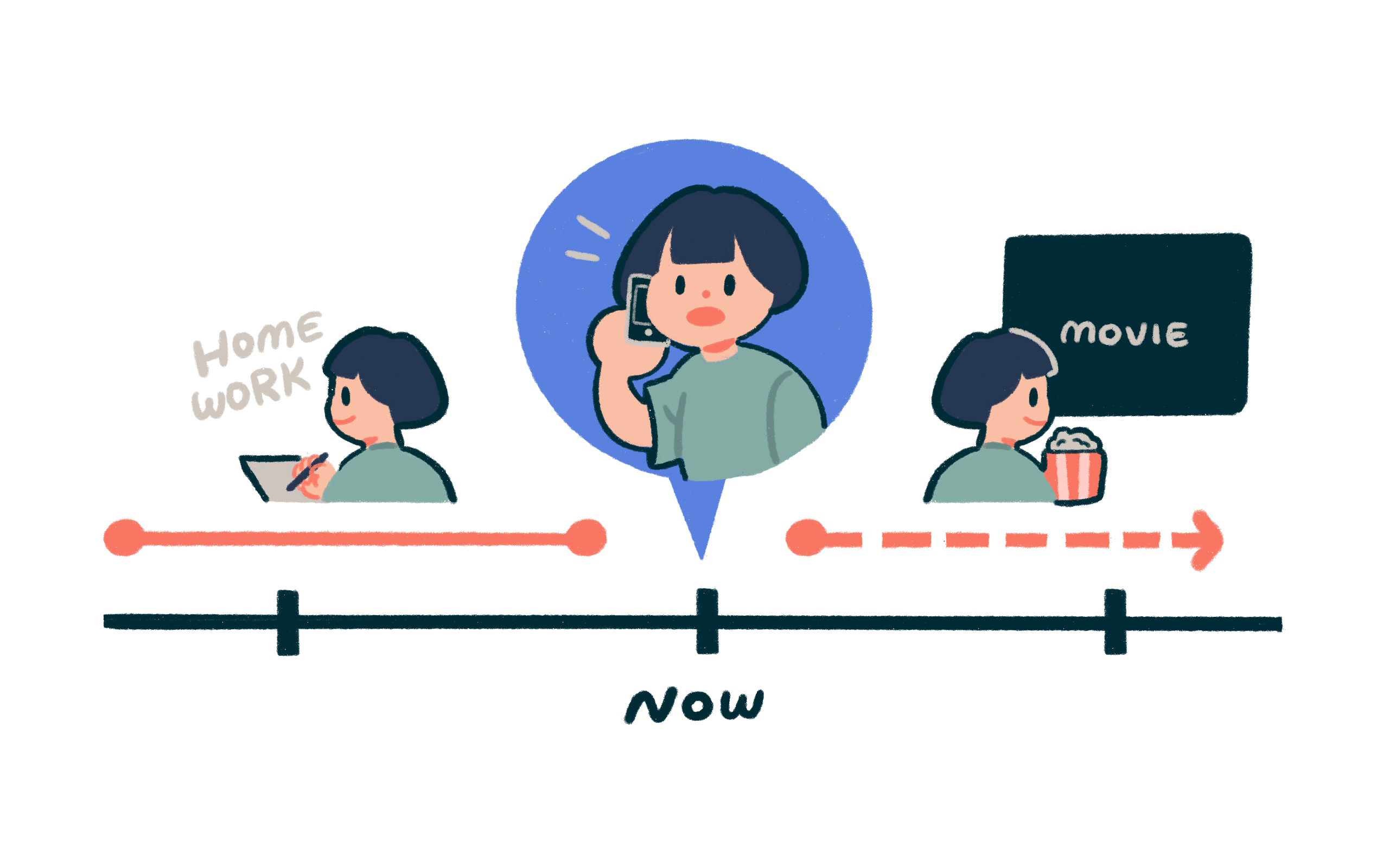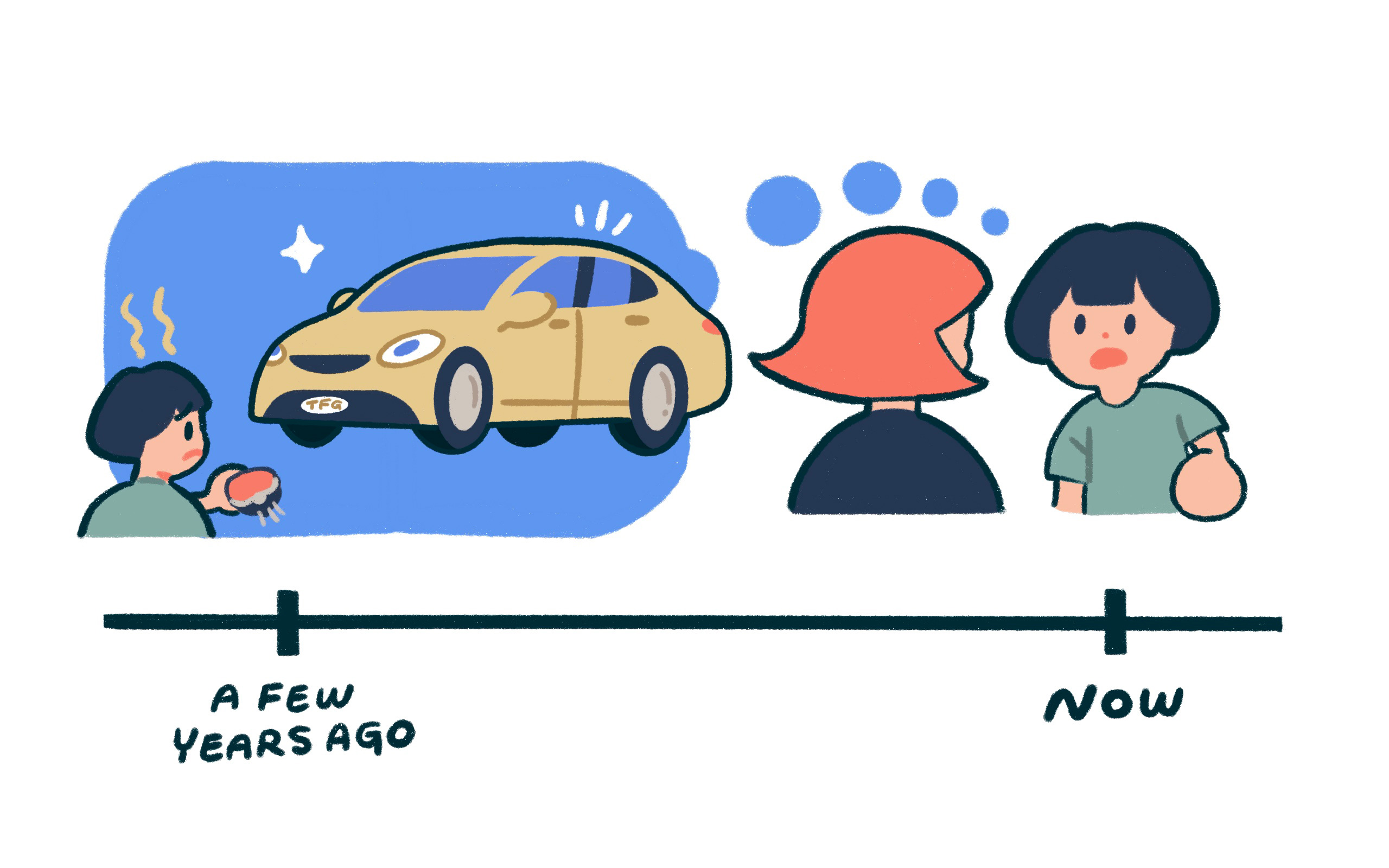[ad_1]
How do you describe what you simply did in Japanese? Perhaps you simply brushed your enamel, otherwise you simply purchased a automobile. How are you going to describe these previous actions which have simply occurred?
Properly, you have acquired two nice choices: ばかり and ところ. Say you wish to inform somebody that you just simply purchased a automobile in Japanese. To easily say you “purchased a automobile,” it is 車を買った. Nevertheless, if you wish to say it simply occurred, you should utilize both ばかり or ところ and say:
- 車を買ったばかり。
車を買ったところ。 - I simply purchased a automobile.
Each are translated as “I simply purchased a automobile” on this case. So do they imply the identical factor? The reply is not any, and that is why we’re writing this text! Past what you see within the English translation, there are variations in nuance, and one works higher than the opposite relying on the state of affairs or what you are actually attempting to say. Which one would you employ, for instance, for those who’re protecting somebody up to date in your whereabouts and also you wish to allow them to know you have simply completed the errand on the automobile dealership? How about if somebody scratches your new automobile and also you wish to scream at them that it is a automobile you solely simply purchased?
When you’re curious, hold studying! On this article, we’ll cordially introduce you to every one, clarify the character variations between ばかり and ところ, and assist you determine which one to whip out relying on the state of affairs. You simply plopped your self all the way down to learn this text anyway, so may as nicely hold going!
Earlier than going deeper on the topic, we additionally wish to make clear that this text will focus solely on utilizing ばかり and ところ once they observe verbs of their previous tense to speak about current happenings, as in 〜たばかり or 〜たところ.
You might have additionally heard ばっか or ばっかし used as an alternative of ばかり, or とこ as an alternative ところ. These are simply informal variations of ばかり and ところ. Examples you see on this article primarily use ばかり and ところ, however know that they are all interchangeable.
Stipulations: This text assumes you already know hiragana and katakana. When you want a refresher, check out our Final Hiragana Information and Final Katakana Information. To get essentially the most out of this text, ensure you’re already acquainted with tense typically, particularly previous tense varieties. Bonus factors for those who’re already just a little acquainted with ところ and ばかり, however don’t be concerned if you do not know an excessive amount of but. That is what you are right here for!
What Are ばかり and ところ?
First issues first: what’s ばかり and what’s ところ? Earlier than leaping into the variations between them, let’s first get to know extra about what every does, and what every means.
ばかり
ばかり originates from the Japanese phrases for measurement or quantity — 計り, 測り, and 量り, all pronounced はかり — and has a number of totally different meanings at the moment. A kind of meanings is “simply” or “solely.”
In case you have by no means seen how ばかり means “simply” or “solely,” this is a fast instance. If you wish to describe that every one somebody does is sleep, you may say that they 寝るばかり (solely sleeping) and never doing anything. In the identical method, you may complain that your child’s doing ゲームばかり (solely video games) on a regular basis. And when it will get used with previous tense verbs (which this text is all about), it mainly means “this factor occurred, and solely simply just a little time has handed since then.”
When you consider it, “solely” or “simply” is subjective. You may consider a glass of water as half empty — there’s solely this a lot water — or as half full. It simply depends upon your perspective.
When ばかり is used to explain a previous occasion, it expresses how one thing feels prefer it occurred not too long ago to you, the speaker, in all probability to be able to make some form of level. In that sense, ばかり is fairly subjective in that the precise period of time that has handed would not actually matter. You’ll be able to even use it to explain one thing you probably did some time in the past — so long as it feels current to you in that context.

Here is an instance. You bought your nails accomplished a number of days in the past, and somebody asks you to dig a gap for his or her pet alligator’s funeral. You may indignantly exclaim:
- でもネイルしに行ったばっかりだよ!
- However I simply acquired my nails accomplished!
Technically it is not one thing you simply did if it occurred a number of days in the past. Nevertheless, you should utilize ばかり right here as a result of it nonetheless feels current to you, particularly contemplating this case the place somebody’s requested you to assist them dig a gap within the floor. With these recent nails? No means!
ところ
Truly, you could know what ところ means already. It is the identical as 所, a Japanese phrase for “place” or “location.” An essential factor to bear in mind right here is that ところ would not solely imply a “place” within the bodily sense — it might probably additionally imply a “place” in time.
When ところ is used to say what you simply did, it is such as you’re saying, “This factor simply occurred, and that is the place I am at now.” For instance, for those who simply completed ingesting some water, you would say this:
- 飲んだところです。
- I simply completed ingesting.
By saying ところ on this sentence, you are merely pointing to the second shortly after gulping down water and saying, “Here is the place I am at.”
You’ll be able to truly use different verb tenses with ところ too. It simply depends upon which stage of the exercise you are at, and which one you wish to level to!

飲むところ is if you find yourself about to begin ingesting. 飲む is within the so-called current tense, however it may be used for a future motion as nicely. 飲んでいるところ is if you find yourself within the means of ingesting, as a result of as you may know, 飲んでいる is the current steady type. Then, 飲んだところ is when you’ve gotten simply completed ingesting, as 飲んだ is previous tense. Utilizing ところ, you’re merely reporting the place you’re within the course of: “I am about to do that,” “I am in the course of doing this,” “I simply did this,” and many others.
Utilizing ところ, you’re merely attempting to state the very fact of the place you’re on a timeline.
Did you discover how ところ is goal in comparison with ばかり, which depends upon the subjective feeling of recency?
Now, let’s check out one of the vital widespread examples of how that is used for one thing that simply occurred. When you’re in your approach to meet up with a pal they usually ask you the place you’re, you may say this:
- 家を出たところ。
- Simply left the home.
(Actually: I am on the level the place I simply left the home.)
On this state of affairs, you are both actually standing outdoors your entrance door, you have solely taken a number of steps away from it, or possibly you have made it down the road, however not a lot farther. It is positively solely been a number of quick seconds/minutes because you ventured into the skin world. And in contrast to ばかり, it might probably’t solely be your feeling that you have simply left the home. It is an proven fact! They have safety digital camera footage to show it and every thing.
Now that you just get the essential gist of ところ, wanna strive making a full sentence with it? Oh yeah, I do know you do. So, what if somebody needs to know your progress on that report you have been engaged on?
- 今レポートを書き終わったところです。
- I simply completed writing the report.
(Actually: I’m on the level the place I simply completed writing the report.)
That is it — nothing extra to say, simply that the report is completed, and also you accomplished did it simply now. This sentence sounds so impartial and detached, you would whip it out to your boss they usually would not bat an eyelash. When you wished to, you might add some emotional colour to this assertion with further phrases or phrases, and even the tone of your voice. However not like ばかり, ところ is fairly easy by itself.
ばかり vs ところ: What is the Distinction?
Alright, we have met the subjective ばかり and shaken arms with the extra goal ところ. Now, let’s overview what each is about earlier than we transfer onto the nuances of every.
To reemphasize, ばかり is extra subjective and might be linked to the speaker’s emotions, whereas ところ is extra goal and studies the place you are at in “time.”
Once you wish to make an announcement about how current one thing feels to you, you could wish to use ばかり. It would not matter when it truly was. Its focus is relatively on how little time appears to have handed since, so it provides a subjective really feel.
Nevertheless, whenever you merely wish to specify a cut-off date to explain what you have simply accomplished, you may wish to use ところ. You are reporting your standing or stage of progress objectively by telling “the place you’re at” in time. This stuff have in all probability actually simply occurred otherwise you’ve simply accomplished them, and there is not essentially a lot feeling concerned. Not too exhausting to know, huh?
However simply to delve just a little deeper, we’ll present you examples so that you could evaluate the 2 aspect by aspect and actually see the variations between them.
Evaluating the Nuances Between ばかり and ところ
For comparability’s sake, let’s begin with conjuring up some conditions the place it may be extra pure to make use of one over the opposite.
State of affairs #1: “I Simply Purchased a Automotive”
Hey, bear in mind the instance state of affairs of shopping for a automobile we supplied originally of this text? It is time to lastly discover out what the distinction is whenever you use ばかり vs ところ on this state of affairs.
You now know that ばかり is used whenever you wish to make a barely stronger assertion of the way you really feel like one thing “simply” occurred, whether or not or not it was notably current. You are in all probability making a degree about how you’re feeling a few sure state of affairs. Individuals typically use ばかり to say that it is inconvenient/nonsensical for [second thing] to occur, as a result of they really feel like [first thing] only recently occurred.
For instance, have a look at this sentence about shopping for a automobile.
- 車を買ったばかり。
- I simply purchased a automobile.
By saying ばかり, you are placing emphasis on the finished motion and the way little time you’re feeling has handed since then. You simply purchased a brand new automobile! Perhaps somebody’s pressuring you to purchase a brand new automobile, however you’re feeling prefer it’s means too quickly for that because you simply purchased your present automobile a number of months in the past. Otherwise you scratched the automobile you obtain final 12 months, and it is a disgrace since you’d hoped to maintain it in good situation for for much longer. Or maybe you must scrap your automobile, regardless that you obtain it model new three years in the past. Oof!

See how the precise period of time that is handed would not matter? Type of like how individuals say “it seems like solely yesterday!” Tossing ばかり into your sentences can have these layered implications about how you’re feeling concerning the state of affairs, so ensure you’re utilizing it deliberately.
Alternatively, you additionally know that ところ is used whenever you merely wish to state the very fact of the place you’re on a timeline. Not like ばかり, you are probably not placing emphasis in your emotions concerning the state of affairs or subjectively commenting on the recentness of the occasion. As an alternative, you are pinpointing a selected second in time.
As an example, you would objectively report this about the place you’re within the car-buying course of:
- 車を買ったところ。
- I simply purchased a automobile.
Fairly matter-of-fact! You simply purchased a automobile, and that is the place you’re at. Perhaps you obtain a automobile actually simply now, and your mother is questioning the place you’re within the progress of your errands. She texts you 「今どこ?」 (“The place are you?”), and also you’re reporting, “I am at a degree the place I simply purchased a automobile.” Do you discover how the tone and implication of the sentence varies relying on which one you employ?
Here is one other slight distinction: As a result of ところ describes a selected level on a timeline, it carries a nuance that following the finished motion, there shall be one other motion. For instance, saying 車を買ったところ brings up a timeline within the listener’s thoughts – possibly going grocery buying would be the “subsequent factor” you do after shopping for the automobile, which you will in all probability inform them within the subsequent breath. However saying 車を買ったばかり would not have fairly the identical impact.
State of affairs #2: “I Simply Bought within the Taxi”
Now let us take a look at a state of affairs the place both one can be okay, however they carry totally different nuances. Think about you are texting somebody you are assembly up with.
- タクシーに乗ったところ。
- I simply acquired within the taxi.
This sentence is solely reporting that you just simply acquired in a taxi. It could possibly be a approach to inform your pal that you just’re in your means and provides an thought of whenever you’ll arrive. ところ is ideal for protecting somebody up to date about your whereabouts like this.
- タクシーに乗ったばかり。
- I simply acquired within the taxi.
Whether or not it’s best to throw out a ところ or ばかり actually depends upon the context and what tone you are attempting to convey.
Alternatively, for those who used ばかり, it feels like somebody (in all probability the individual you are texting) is speeding you to get to the vacation spot. Perhaps they’re texting you issues like まだ着かないの? (“Are you not right here but?”) and also you’re saying you will not have the ability to get there as rapidly as anticipated, as a result of it is barely been a minute since you bought within the taxi.
See? Technically each imply “I simply acquired within the taxi,” however they carry totally different nuances. Whereas ところ merely studies your progress, ばかり emphasizes how little time has handed based mostly in your emotions.
State of affairs #3: “I Simply Completed My Homework”
Here is our remaining state of affairs. Your pal’s calling to see what you are as much as and ask if you wish to seize dinner collectively. You simply completed your homework, so that you’re all the way down to exit for dinner. Which one do you suppose works higher — ところ or ばかり? Relying in your alternative, you will come off otherwise. Let’s first check out an instance utilizing ところ.
- いいよ!今宿題が終わったとこ。
- Sounds good! I simply completed my homework (and I am able to exit).

ところ works nicely right here because it simply merely studies the place you are at on a timeline. “However cannot you then use ところ whenever you cannot exit for dinner too?” you may ask. Properly, you are proper. You could possibly use ところ even if you cannot exit for dinner — utilizing it to elucidate that you have simply completed your homework and that there is one thing arising subsequent in your agenda, for instance:
- 今宿題が終わったところで、これから映画に行くんだ。ごめんね。
- I simply completed my homework, and I will a film now. Sorry.
See how you should utilize ところ to put out your timeline like this? Now, let’s look into how ばかり works on this state of affairs.
- ❓ いいよ!今宿題が終わったばかり。
- Sounds good! I simply completed my homework (and I must take a breather first).
Utilizing ばかり comes off as unnatural on this state of affairs the place you are attempting to say “sure” to the invitation. ばかり makes it sound such as you want a minute to sit back out first or one thing, as a result of the main target is on how little time you’re feeling has handed because you completed your homework. And for those who want a while to loosen up, you in all probability would not say “sounds good,” proper?
However is it okay to make use of ばかり if the reply was “possibly just a little later,” you surprise? That is an amazing guess, as a result of ばかり might truly work in that case. For the reason that drawback with ばかり earlier was that it sounded such as you wanted a minute for no matter cause, it really works nice in a sentence like:
- 今宿題が終わったばかりだから、ちょっと後でもいい?
- I simply completed my homework (and I must take a breather first), so is it okay if we go just a little later?
ばかり and ところ For Issues That Truly Occurred A Whereas In the past
Up till now, we have stated rather a lot about how ばかり and ところ are used to explain issues which have simply occurred. You simply dropped your graphing calculator in the bathroom (oops). However time to unleash the entire fact: Each can be utilized for occasions that truly occurred some time in the past, too. Like possibly that poor calculator took the final word plunge in tenth grade, and now you are retelling that story. Stick with me! It will make sense in a minute.
For ばかり, this works when the speaker subjectively feels that it hasn’t been a lot time for the reason that factor occurred, however that period of time is weeks, months, years, and many others. And for ところ, this is applicable whenever you’re telling a narrative concerning the previous, and also you’re pointing to the place you have been on that timeline within the story — typically utilizing the previous tense ところだった.
Wish to be taught extra? Alright, let’s crack open our good pal ばかり first.
Take into consideration this instance state of affairs. If a child begged their mother to purchase them a brand new cellphone, the ママ (mama) may retort:
- 半年前に買ったばっかなのに?
- Despite the fact that I simply purchased (you a brand new cellphone) half a 12 months in the past?
This sentence carries a powerful emotional tone of “I simply purchased you a brand new cellphone not too long ago, so do not push your luck, squirt!” If this sentence have been an emoji, it could be the incredulous one with the raised eyebrow. 🤨
Whether or not one thing might be thought-about “current” depends upon the state of affairs and other people’s emotions about it.
However again to the primary level right here — see how the factor that occurred wasn’t truly that current, it simply feels that approach to the speaker? Mama is expressing her opinion that six months is just not that way back to have purchased a brand new cellphone for the little scamp.
Besides, you in all probability would not say one thing like this if the child’s asking for a brand new sponge, proper?
- 半年前に買ったばっかなのに?
- Despite the fact that I simply purchased (you a brand new sponge) half a 12 months in the past?
You see how this does not make a lot sense, proper? Hopefully you are shopping for new sponges extra typically than each six months! So regardless that ばかり has fairly a little bit of leeway for subjectivity, there are nonetheless some boundaries and contexts the place it is simply nonsensical to contemplate an occasion current.
However you realize what affords rather a lot much less wiggle room? ばかり’s counterpart ところ, as a result of solely information matter to ところ. Let’s shuffle again to the automobile dealership and revisit the car-buying instance, we could? Evaluate these two sentences:
- 数年前に車を買ったばかりだ
- I simply purchased a automobile a number of years in the past.
- ❓数年前に車を買ったところだ
- I (am at present on the level the place I) simply purchased a automobile a number of years in the past.
See how ところ would not actually make sense on this context? Conceivably, somebody might really feel that a number of years in the past is current, so ばかり can be utilized. However ところ? Sorry buddy, it simply will not fly. Except you are time touring, you didn’t actually “simply now” purchase a automobile “a number of years in the past.” That might be pointing to 2 totally different factors on the timeline on the similar time, which is bending the legal guidelines of spacetime in a means that the Japanese language would not permit!
Nevertheless, there’s a means you should utilize ところ to speak about issues that occurred some time in the past, and it is when telling a narrative concerning the previous — pointing to a previous second of the place you “have been” on the timeline. Attempt sticking a previous tense だった after ところ as an alternative of current tense だ. On this case, possibly somebody invited you to affix them on a visit a number of years in the past, however you did not go. And now, you are explaining what you have been as much as again whenever you have been invited. You may say…
- ちょうど車を買ったところだったので、お金がなかった。
- I had simply purchased a automobile, so I used to be broke.
(Actually: It was proper on the level after I had simply purchased a automobile, so I used to be broke.)

So long as you are describing a selected level previously and never the current, you should utilize ところ for issues that occurred some time in the past. It is not current anymore, but it surely was current in some unspecified time in the future, and that time is what you are shoving your index finger at whenever you use ところ this fashion.
Bought it? Good! Let’s transfer on to only one extra grammatical distinction between ばかり and ところ.
ばかり for Modifying Nouns
We have solely talked about after we use ばかり and ところ to explain current happenings, like “I simply purchased a costume.” However what if you wish to discuss “a costume you simply purchased,” modifying a noun?
- ワンピースを買ったばかり。
ワンピースを買ったところ。 - I simply purchased a costume.
You in all probability acknowledge this grammatical sample from earlier examples. When the noun comes first like this, both ばかり or ところ is okay, relying on what vibe you are going for. However if you wish to flip the sentence round and begin it by saying “The costume I simply purchased…,” ばかり tends to work higher more often than not.
- 買ったばかりのワンピース
❓ 買ったところのワンピース - a costume I simply purchased
As a result of ばかり focuses on how little time has handed since one thing occurred, it is typically used to precise how new one thing feels. Perhaps you are saying “The costume I simply purchased has a gap in it already!” See? It is smart, since how not too long ago you obtain the costume is related to the emotions you are expressing concerning the state of affairs, which is why ばかり is there.
ばかり is commonly used like this to explain belongings you’ve simply purchased, cleaned, repaired, and many others.
Alternatively, ところ merely factors to a second in time. You not often see ところ getting used this fashion, as a result of the intention to switch nouns is normally to attract consideration to how new or recent one thing is to you and make a degree about that.
Individuals additionally typically use ばかり to explain occasions that simply occurred, or somebody who simply took a specific motion, like so:
- 結婚したばかりのカップル
❓結婚したところのカップル - a pair who simply acquired married
Once more, that is the place ばかり shines — ところ isn’t used this fashion. You may be about to precise emotions about this couple, or a minimum of point out one thing related to how they simply acquired married. Perhaps how seeing newlyweds makes you’re feeling comfortable, or the way you’re planning to purchase a present for the couple who simply acquired married. So bear in mind, for those who’re modifying nouns, you are in all probability going to wish to use ばかり.
You Simply Discovered!
「ばかり」と「ところ」の違いを学んだところですね。
でも今勉強したばかりだから、まだちょっと難しい?
When you might perceive (a minimum of most of) the 2 sentences above and the totally different vibes they specific, congratulations! You are smarter than you have been “simply” a couple of minutes in the past.
To sum it up, you should utilize each ばかり and ところ to explain current occasions or actions. However bear in mind, ばかり expresses extra subjectivity and feeling about how not too long ago one thing occurred, whereas ところ offers a extra impartial, goal report of the place you are at on a timeline. And you should utilize them to speak about previous occasions too, in some instances.
Hopefully after studying this text, you have discovered your self in a barely smarter ところ in life than you have been earlier than!
[ad_2]